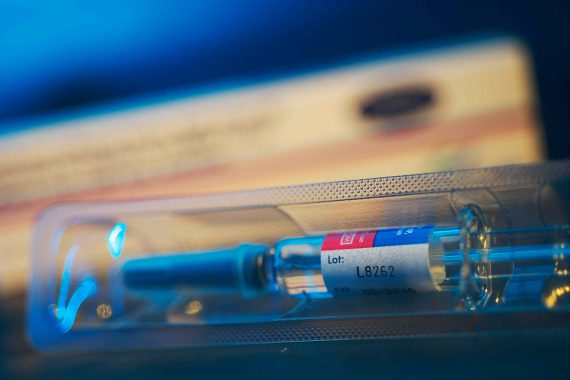The UK has more confidence in vaccines than many other parts of Europe but is in a ‘vulnerable’ position as social media amplifies anxieties and mistrust, experts have warned.
A global study of attitudes towards science by the Wellcome Trust found that only 59% of people in Western Europe think vaccines are safe, compared with a figure of 79% worldwide.
The Wellcome Global Monitor Survey which asked 140,000 respondents worldwide for their views, found a clear link between people’s trust of doctors, nurses and scientists and their confidence in vaccines.
In the UK almost nine in 10 people said they thought it was important that children were vaccinated.
And 75% of people in the UK said they strongly or somewhat believed that vaccines were safe – similar to the figures for other countries in northern Europe – with 86% saying they thought they were effective.
The reason for higher levels of confidence compared with some other countries in Europe may be that 90% of UK respondents said they would trust a doctor or nurse most on medical or health advice.
France, where there have been several outbreaks of measles, seemed to have the least confidence, with the survey finding the highest level of distrust of vaccines of any country, at 33%.
A report from Unicef in April estimated that half a million children in the UK missed out on their first dose of the measles vaccine between 2010 and 2017.
It followed a study from the Royal Society for Public Health which found fear of side-effects was the main reason people choose not to get vaccinated.
Dr Heidi Larson, the director of the Vaccine Confidence Project at the London School of Hygiene and Tropical Medicine, said social media was amplifying anxieties. While confidence in vaccines in the UK was higher than in some other parts of Europe, ‘where the UK is now I would say is vulnerable’, she said explaining that misinformation on vaccines online was hard to combat because it was often not public.
Larson said while the UK was generally doing better than other parts of Europe, she still had concerns.
‘I don’t think we have an emergency today, but I want to anticipate where we are going,’ she said. ‘Trends are important. We need confidence building and information targeted at the younger generation.’
Dr Andrew Green, clinical lead for the BMA’s GP Committee, said: ’It is testament to the hard work of GPs and nurses working with patients over many years that patients continue to trust us, and such trust is essential when combating malign social media influencers.
’An essential element of this comes from the stability that GPs’ traditional lists provide, and the loss of such continuity together with the personal relationships that are produced will be a high price to pay should alternative models of care based on remote consultations become more widespread.’
Pulse October survey
Take our July 2025 survey to potentially win £1.000 worth of tokens
















